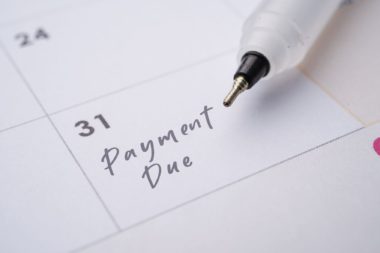Late Payments: The Importance of Good Communication (FAQ+)

For this installation of FAQ+, we are going to look at another frequently searched topic on the FAQ page: What should I do if my monthly payment is going to be late?
The answer on our FAQ page was recently updated to state:
Reliable Credit understands that our customers may face temporary financial problems over the course of their account. We want to help give our customers as many options as possible to assist them through their temporary financial difficulties. The best thing to do is to contact your branch location to discuss your situation with a customer service representative. The sooner you contact us, the more options we may have to offer.
That’s the quick answer. But there’s more to it than that.
We know most customers are reluctant to contact us if they don’t know when their financial hardship will end. This may be because there is no money to put towards a payment. It may also feel like a tough or awkward conversation to have.
Communication is Key
Over the years, we have learned that a customer’s instinct may be to avoid talking to a creditor until they can make some kind of payment. Helping our customers be successful with their loans is important to us and communication is key. If we are going to make special arrangements, we need an open and truthful conversation.
A Recent Example
A common and recent example is a customer who has been out of work due to COVID-19 or COVID-19 exposure. Employers may require anywhere from 10 to 14 days of isolation or quarantine before allowing an employee to return to work. This could mean the employee would miss up to two pay cycles, which may make it difficult to make a payment and could cause their account to be in default. After all, not nearly enough of us have Rainy Day Funds to cover these kinds of events!
What Are the Options?
When a customer is faced with either being late or not being able to make a payment, there are essentially two options: staying silent or staying in communication.
Option 1 – Staying Silent
If a customer chooses to stay silent and doesn’t inform us of their (hopefully) temporary situation, we may assume the worst. We always prefer getting a delinquent account back on track. Staying silent could have negative repercussions such as late fees, derogatory marks on your credit report, and possibly repossession of the collateral.
Option 2 – Staying In Communication
When a customer chooses to stay in communication with us, we can identify the problem and ask additional questions to understand whether the problem is recurring (likely to happen again) or nonrecurring (not likely to happen again).
When a customer is faced with either being late or not being able to make a payment, there are essentially two options: staying silent or staying in communication.
Consider the above example of someone who is dealing with a COVID-19 issue which prevents them from making their monthly payment. We would consider that a nonrecurring problem and would do our best to work with the customer to create a payment plan that is mutually beneficial based on when they can go back to work and when they would receive their next paycheck.
Our Goal
Of course, the best approach is to pay on time. But our goal is to see our customers succeed with their financial goals. We are pleased to serve our customers when they need us most and appreciate being a part of their success. By staying in communication, even during those difficult periods, we are better able to help them be successful.
Contributed by Scott S and Dan S